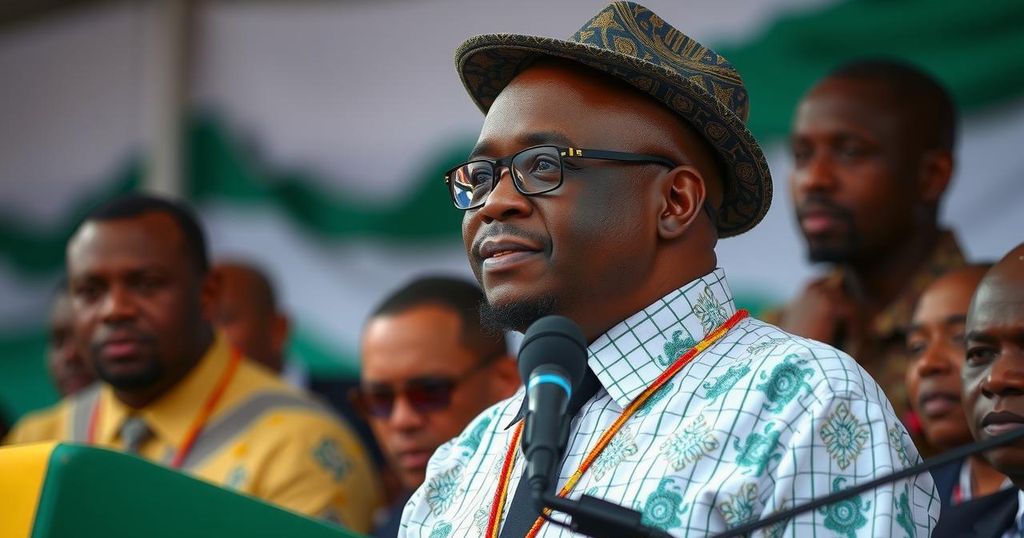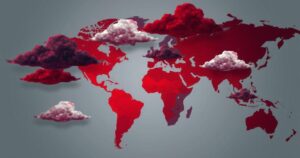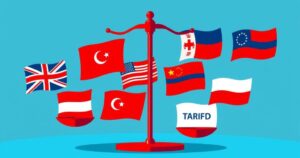Ghana’s Upcoming Elections: A Test between Two Political Giants Amidst Economic Turmoil

Ghana’s December 7 elections feature former President John Mahama challenging incumbent Vice President Mahamudu Bawumia, with economic recovery at the forefront of voter concerns. Despite a stronghold by the NDC and NPP since 1992, emerging independent candidates and dissatisfaction with the political status quo could influence the outcome, leading to a highly competitive election amidst significant economic challenges.
The upcoming national elections in Ghana, scheduled for December 7, are generating considerable anticipation, particularly as former President John Mahama emerges as a formidable challenger against the ruling party’s candidate, Mahamudu Bawumia. Mahama has pledged to create a 24-hour business environment aimed at fostering job creation and enhancing the economy, which faces the lingering effects of a $30 billion external debt default experienced in 2022. On the other hand, Bawumia, the incumbent Vice President, has expressed his commitment to recovering from the post-COVID economic challenges and addressing internal pressures affecting the nation.
Since the introduction of its multi-party system in 1992, Ghana’s political landscape has been predominantly shaped by the National Democratic Congress (NDC) and the New Patriotic Party (NPP), a trend expected to persist, according to University of Ghana senior lecturer Kwame Asah Asante. Despite relatively poor performances by minor parties over past elections, indicators suggest that if they secure more than 4% of the vote, they could influence a runoff scenario. Meanwhile, expressions of disenchantment with the longstanding two-party dominance are evident among undecided voters in Accra, like Angela Ofori, who expressed a desire for a change that would yield tangible improvements.
New candidates, such as Nana Kwame Bediako, also known as Cheddar, have emerged to capture the attention of younger voters, although their impact remains limited. Bediako is running as an independent and has outlined a vision for adopting eco-friendly policies while improving daily life for Ghanaians. Amidst these political dynamics, significant economic challenges persist, exemplified by Ghana’s position as the world’s second-largest cocoa producer and the ramifications of its substantial debt default amid the COVID-19 pandemic and global grain supply disruptions caused by the Ukraine conflict.
Key issues such as infrastructure development, corruption, and unemployment are high on voters’ agendas. Nevertheless, the economy is paramount in influencing voter decisions, with Asante noting that difficult economic conditions complicate campaigning for the ruling party. Similarly, John Taden, an international political economist, pointed out that high inflation is a significant concern for voters. Instances of illegal mining, locally referred to as “galamsay,” threaten agriculture and cocoa production, prompting some voters to support Mahama’s return amid mounting discontent against the current administration.
Conversely, supporters of Bawumia laud him for policies that have initiated digital advancements within the economy, a sentiment highlighted by voter Ivan Duke. Under Bawumia’s leadership, there are claims of progress in health sector digitization and improvements in government operations. The political climate in Ghana remains stable compared to its neighbours, with expectations that the elections will be fiercely contested, showcasing the desire for economic recovery and change within the electorate.
Ghana’s political history since the re-introduction of democratic governance in 1992 has been predominantly characterized by contests between the National Democratic Congress (NDC) and the New Patriotic Party (NPP). The country’s economy has recently suffered from significant challenges, including a default on external debts amounting to $30 billion and issues stemming from the COVID-19 pandemic, alongside infrastructural deficits and internal pressures from illegal mining practices. These economic and political dynamics shape the conversation as the nation approaches the December elections, where voter sentiment seems poised between continuing with the incumbent party or seeking new leadership.
The forthcoming elections in Ghana are set against a backdrop of economic challenges and political competition primarily between two established parties, with significant public interest in a potential change in leadership. With the economy at the forefront of voters’ concerns and an increasing desire for alternatives to the existing political parties, the elections promise to be highly competitive. As both Mahama and Bawumia outline their visions for Ghana’s future, the response from the electorate will ultimately determine the direction of the nation in the coming years.
Original Source: www.voanews.com





